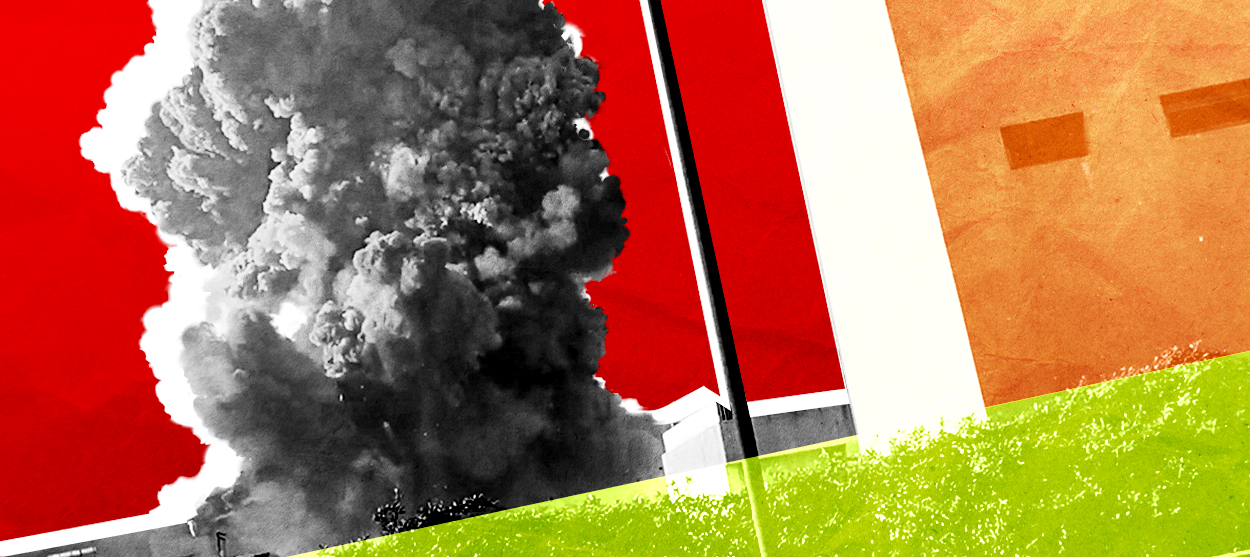The tragedy in Beirut
The blast will only exacerbate one of the world's worst humanitarian crises


A free daily email with the biggest news stories of the day – and the best features from TheWeek.com
You are now subscribed
Your newsletter sign-up was successful
Millions of people around the world reacted with horror to footage of a massive explosion that killed dozens of people and injured thousands more in Beirut on Tuesday. It is still too early to say what caused the blast, which Lebanese authorities attributed to a fire igniting explosive materials stored in a "dangerous warehouse." It has been reported that nearly 3,000 tons of ammonium nitrate had been impounded in 2014 and left in storage there. An early statement sourced to an unnamed official denied Israeli involvement; Gabi Ashkenazi, Israel's foreign minister, later claimed that the explosion was most likely an accident.
What we do know is that the blast will only exacerbate one of the world's worst humanitarian crises. Never mind the ongoing pandemic. Well before COVID-19 was on the lips of a single person outside Wuhan, Lebanon's debt-to-GDP ratio was the third highest in the world. The unemployment rate is over 30 percent. Its currency is being exchanged for American dollars on the black market at more than four times the official exchange. Half of the population lives in poverty. Prices of food and other goods have been increasing at an unsustainable rate, and there are severe shortages of fuel. Electricity works two or three hours a day, including on airport runways. The once-praised head of the country's central bank has been caught in what is essentially the state-run equivalent of a Ponzi scheme.
The explosion also comes as a verdict is expected in the trial of four men who have been accused of murdering Rafik Hariri, the prime minister of Lebanon who died in a car bomb incident in 2005. Hariri, who first came into office in 1992, was instrumental in the drafting of the agreement that ended the Lebanese Civil War of 1975-1990, which killed 120,000 people and led to the emigration of nearly a million others. Almost immediately following his death the country returned to war again, this time with Israel.
The Week
Escape your echo chamber. Get the facts behind the news, plus analysis from multiple perspectives.

Sign up for The Week's Free Newsletters
From our morning news briefing to a weekly Good News Newsletter, get the best of The Week delivered directly to your inbox.
From our morning news briefing to a weekly Good News Newsletter, get the best of The Week delivered directly to your inbox.
In recent years the situation in Lebanon has gone mostly unremarked upon in the United States, at least outside of our sizable Lebanese diaspora. Americans are an inward-facing people at the best of times; during the last six months of lockdowns, economic downturn, civil unrest, and rising crime it is almost unimaginable that the horror in Lebanon would have captured our attention at all had it not been for videos of Tuesday's explosions.
This is not to suggest that there are any straightforward solutions to Lebanon's problems or that increased American attention to the country or the region more generally would improve things. (The last two decades have shown us how effective we are in the Middle East and Central Asia when we put our thinking caps on.) Whatever our State Department or the European Union might insist in their designations, Hezbollah, the Iran-backed militia, enjoys widespread support and considerable political influence in Lebanon. The idea that destroying the organization is either possible or desirable should be dismissed out of hand.
Instead the only course of action available at present is the one already being proposed by leaders of countries around the world: humanitarian aid, including emergency food and medical supplies, and eventually some kind of bailout of Lebanon's devastated economy that could perhaps be offered in exchange for a reduction in Hezbollah's stock of weapons. Such a relief package would almost certainly have to sidestep the conditions usually imposed by the International Monetary Fund and similar groups regarding transparency, which are unlikely to be adhered to even if they are somehow agreed upon. If this seems inadequate to the scale of the misery there, we should remember that the vast majority of those who will call for more sweeping actions in the days and months to come were not even aware of the crisis 24 hours ago.
A free daily email with the biggest news stories of the day – and the best features from TheWeek.com
Matthew Walther is a national correspondent at The Week. His work has also appeared in First Things, The Spectator of London, The Catholic Herald, National Review, and other publications. He is currently writing a biography of the Rev. Montague Summers. He is also a Robert Novak Journalism Fellow.
